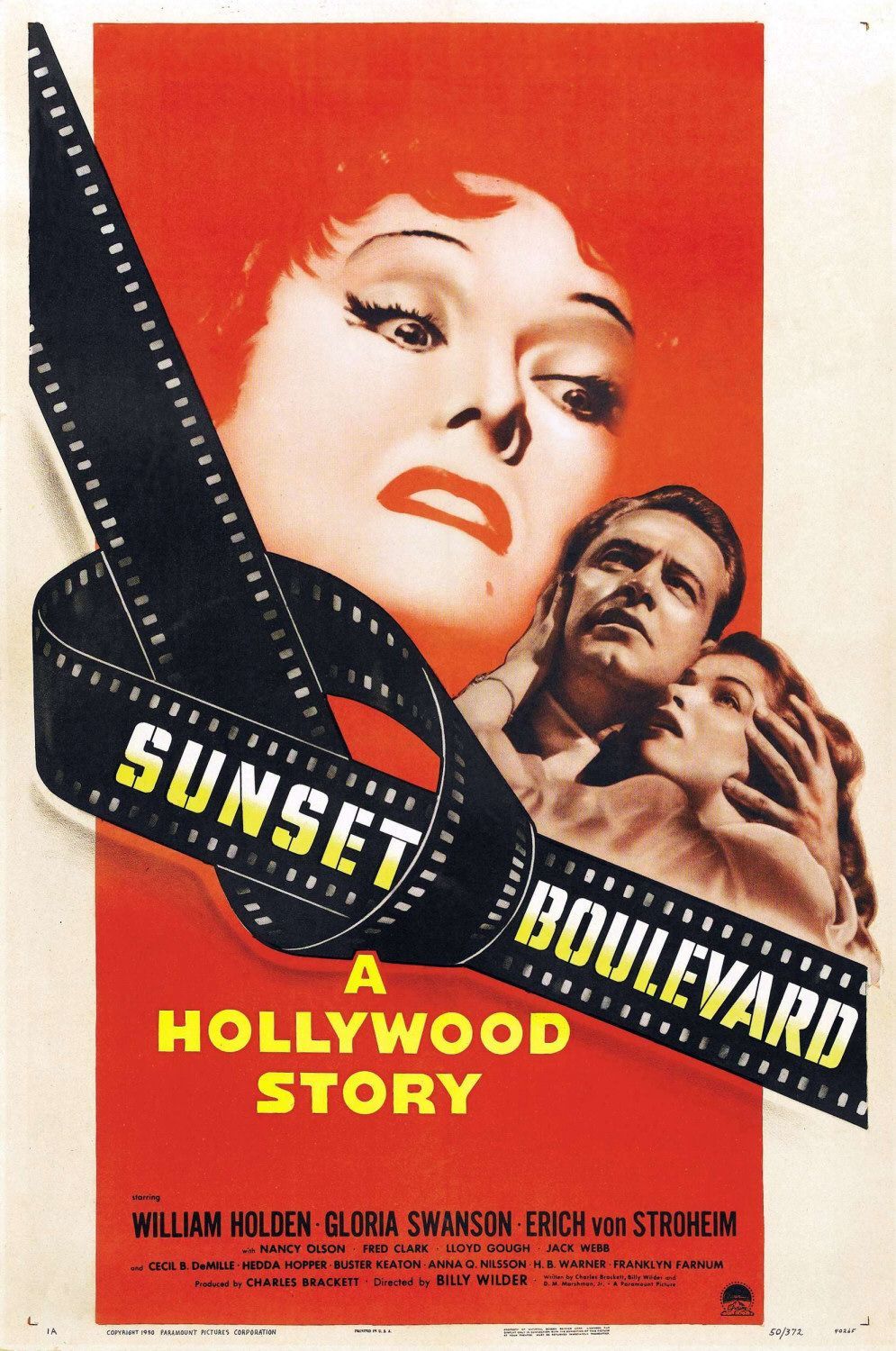Film Review: Sunset Boulevard (1950)



If there’s a more perfect movie featuring a monkey funeral, I’d like you to name it. I’m joking of course, but it’s hard not to crack wise when it comes to Sunset Boulevard. It is as close to a perfect movie as you can get in the formal sense, but it’s also funny as hell – albeit on the dark side. Billy Wilder’s early Noirs often had a penchant for humor that walked a fine line between comedy and tragedy because, sometimes, a joke is all one can muster when trapped in a situation as bizarre as the one that leads to our narrator’s demise. As it turns out, not even floating face down in a Hollywood swimming pool is enough to slow Wilder’s twisted humor and sardonic wit.

Sunset Boulevard begins and ends with a body. How that body found itself in the above-mentioned swimming pool is slowly revealed through masterful filmmaking and whip-smart dialogue – not to mention one of the most iconic and eerie performances in Hollywood history. The corpse belongs to Joe Gillis (William Holden) – a down on his luck writer who can’t catch a break. The pool belongs to Norma Desmond (Gloria Swanson) – an aging and eccentric silent film star who lives alone in a giant mansion with her butler, Max (Eric von Stroheim). She lives alone, that is, only until a set of bizarre circumstances allows Joe to move in and take the role of Norma’s handsome young “boy toy.”

Joe isn’t exactly a bad guy, but he’s no saint either. His narration doesn’t downplay the advantage he’s taking of his benefactor or make excuses for it. He only partially convinces himself that the role he plays in Norma’s life is helpful. It doesn’t take much deep examination, though, to realize that they are both using each other – and they both know it. Max, on the other hand – while a bit delusional himself – truly does have Norma’s best interests in mind and will do anything to protect her. Even if it means allowing a young usurper into their carefully guarded lives.

The snappy dialogue, direction, and cinematography are all astounding, but the magic really lies in the spellbinding performance of Gloria Swanson. As Norma, Swanson oozes eccentricity and self-deception. In a film full to the brim with quotable lines, Swanson sums up Norma’s fantasy lifestyle early on:
Joe: You’re Norma Desmond. You used to be in silent pictures. You used to be big.
Norma: I am big. It’s the pictures that got small

With her eyes bulging and head tilted back, Swanson overacts to perfection. We can see the madness, but we can also see the tragedy. She’s pitiable even if she is out of her damned mind. The longer she refuses to give up on the inevitable comeback she’s convinced herself is right around the corner, the more pathetic and deranged she becomes. The film’s final scenes are nothing short of a breathtaking culmination of Norma’s mania for the spotlight. She may be doomed, but I’ll be damned if she isn’t exactly where she wants to be.

As a Film Noir Sunset Boulevard is pitch-perfect, but underneath the fatalism is a spot-on critique of the Hollywood system and its abandonment issues. It’s very nearly a satire, with the likes of Buster Keaton, Hedda Hopper, Cecil B. DeMille (who make cameos as themselves) along to help egg on the exposé. It gets better. In an irresistible bit of meta-filmmaking, footage from the film Queen Kelly is screened for Joe to enjoy. It’s a real silent movie which was produced by Joseph P. Kennedy and shot in 1928. It stars a then 20-something Gloria Swanson and is directed by none other than Eric von Stroheim. In a perfect turn of events, Queen Kelly was only partially finished due to Swanson walking off the set and von Stroheim’s firing. Somehow, Wilder manages to imitate life with art in the most apt and delicious way possible.

The notion of protagonists and antagonists or anti-heroes and Femme Fatales all go out the window when analyzing Sunset Boulevard. No character can be defined as strictly good or evil as everyone wallows in self-deluded shades of gray. They’re selfish and hot-headed, sure, but they’re also lonely and loyal (to a point). Joe, Norma, and Max all have trouble seeing the realities in front of them. All three try to twist the truth until it fits the mold they’ve chosen. Of course, when that doesn’t work, someone winds up dead in a swimming pool. Isn’t Hollywood grand?
